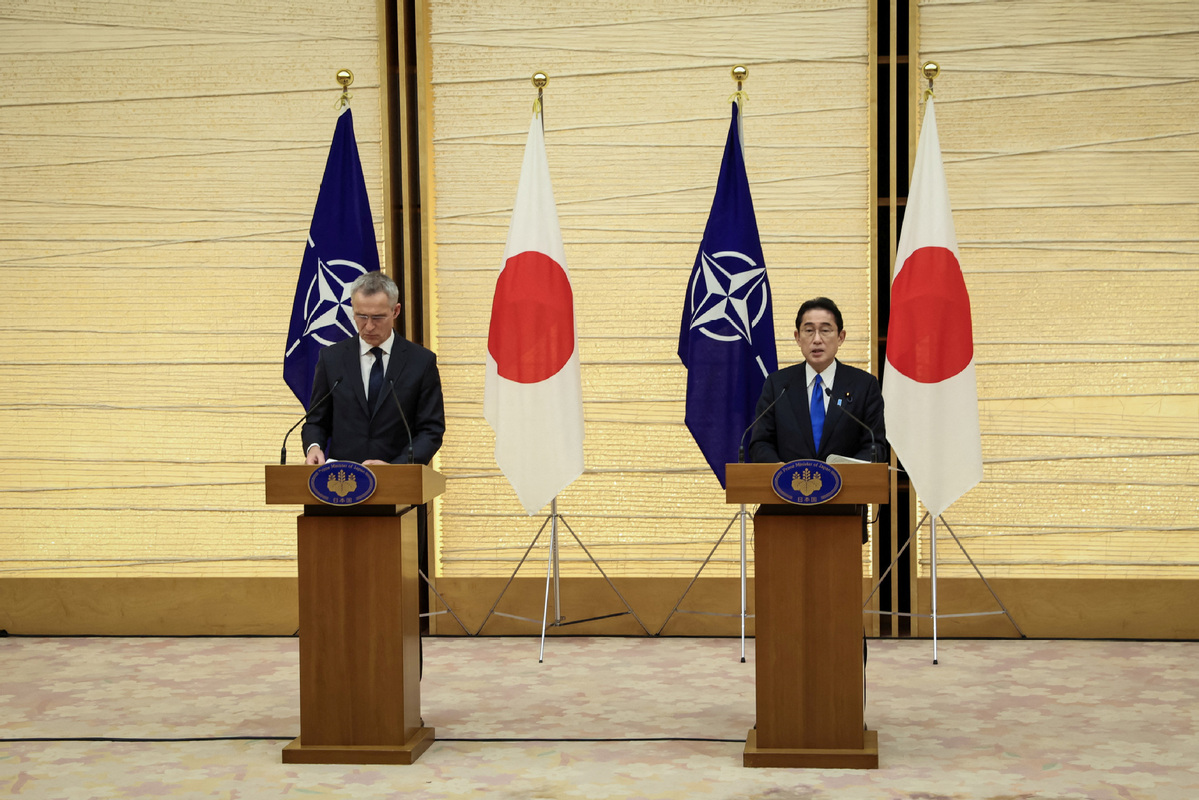Japan out of step with its words


Tokyo's move to align itself with US and NATO has a hefty price, experts say
What Japanese say and what they mean can be two entirely different things, and in this context the Japanese word honne refers to real, inner feelings, and the word tatemae refers to the feelings one expresses publicly.
As confusing as such behavior may be for non-Japanese dealing with Japanese in sundry matters of daily life, imagine the difficulties it poses for diplomats, where properly grasping the slightest nuances can be critical.
"Recent remarks by Japanese leaders about China leave one wondering what their honne is," says Wang Qi, a researcher of East Asian affairs at the Chinese Academy of Social Sciences in Beijing. While Japan constantly reassures China that the two countries are partners rather than adversaries, in Japan's dealings with the United States and NATO it constantly hypes the so-called China threat, Wang says.
Many academics and diplomats have aired views similar to those of Wang, and the Chinese injunction "honor your promises and act prudently" is one that is common currency in such circles when talking about China and Japan. Indeed, it has come up in talks between President Xi Jinping and Japan's Prime Minister Fumio Kishida, when Foreign Minister Qin Gang talked on the phone with his Japanese counterpart Yoshimasa Hayashi and almost every time at Chinese Foreign Ministry daily briefings when talk turns to Japan.
Contrary to China, whose policy toward Japan has been consistent and forthright, the escalation in rhetoric that Japan resorts to talking about China is there for all to see and hear: from "worry" to "serious concern" and "grave concern" to "the biggest strategic challenge".
"Actions speak more loudly than words," Wang says. "Based on the way Japan has acted recently, one can hardly conclude that it is keen to work in a collaborative way with China."
Wang referred to Japan's recent curbs on the export of equipment for manufacturing computer chips to China as well as Tokyo's military collaboration with the US and NATO said to be aimed at "containing" China.
In the 50-minute phone conversation between Qin and Hayashi, the Japanese foreign minister said he believes "Japan and China could hardly achieve development and prosperity in isolation from each other". Yet soon after that telephone call, Japan announced it would be part of so-called tech decoupling from China that the United States has advocated, restricting exports of advanced semiconductor manufacturing equipment from this spring.
The irony in all this, Wang said, is that Japan itself had once been a victim of US protectionism and sanctions, yet now it is failing to choose principles instead of sides to take a strong stand against protectionism.
The Plaza Accord in 1985 resulted in a very strong yen and further hurt Japanese exporters, which ended with Japan falling into the abyss of what is widely called the lost three decades.

































